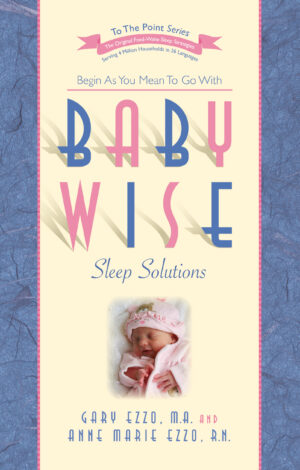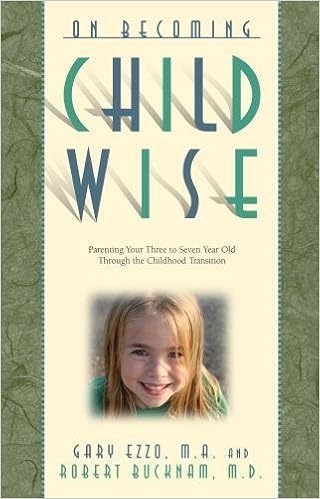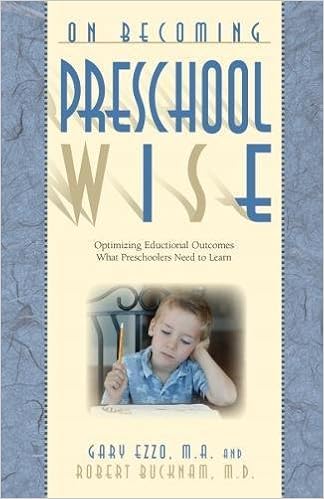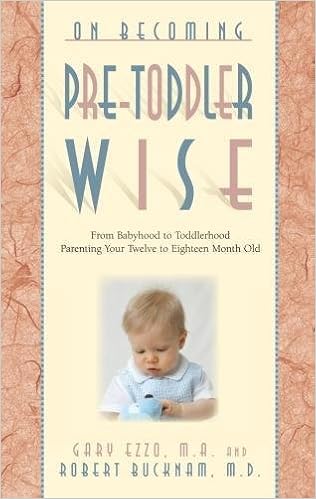Reasons you can successfully breastfeed your Babywise baby. You can absolutely breastfeed a baby on a schedule.

This myth doesn’t require a lot for me to combat it. Many people say to maintain a milk supply, you need to feed every three hours around the clock the whole time you are feeding. Others say you can’t have a schedule and maintain a milk supply.
I have a good friend who is a lactation consultant at our local hospital and is also a member of La Leche League. She insists to me that I cannot maintain a milk supply on a schedule. “But I nursed Brayden for a year and stopped only because I wanted to and have nursed Kaitlyn so far, both successfully.” “No, it doesn’t work because your milk supply won’t go up when baby has a growth spurt because you don’t feed more often.”
First of all, I always find it amusing that she insists it doesn’t work even after I tell her it has worked for me. Second, she is right. If you never adjust the schedule to fit the needs of the baby, you will likely compromise your milk supply.
Luckily, that is not what Babywise is about. It is Parent Directed and you always feed baby when baby is hungry, no matter what. You feed, then you investigate why baby is hungry. If it is a growth spurt, you wait until the growth spurt is over, continuing to feed as often as necessary. If it is a problem in some way, you try to solve it but continue to feed hungry baby.
Get Babywise books here
So here are my thoughts to combat that myth:
- Number one is my own experience. I have successfully nursed two babies on a schedule. No problems. No supply issues. EDITED 2013–I have now nursed four babies for one year each successfully while on a schedule.
- I also know many BW moms who successfully nurse their babies.
- Another is the experience of others. There are women who nurse beyond one year, two years, etc. Some of these women are BW moms and some are demand feeders for the first while. But for a 2 year old, they nurse on a schedule and only nurse a couple of times a day. They manage to maintain some sort of supply while on a schedule.
- If you follow BW principles, there should not be a compromise to your supply. You adjust feedings for growth spurts. You maintain the proper number of feedings based on the age of your baby. You don’t let too many hours go between feedings even at night.
- You also need to follow other nursing principles (also discussed in BW). You drink enough water and eat a balanced diet. You rest. You can even take herbal supplements if necessary. You can pump if you aren’t getting enough stimulation.
- Some women will have supply issues, but they would have them anyway. Some are because of baby and some are simply genetic for the woman, but neither has anything to do with Babywise.
Remember, I started Brayden on Babywise at 9 weeks. Before that, my supply was so erratic. I would “let-down” randomly and in public. I never knew when he would want to eat. I seemed to always be uncomfortable. Once I started BW with him, things evened out and I no longer had let down issues. Yes, that has nothing to do with supply. And yes, it also has something to do with nursing for longer periods of time. But with Kaitlyn, everything evened out within a week of her birth. It is just a nice perk of Babywise.
Real Life Experiences
I asked 94 Babywise moms about their experience breastfeeding. Here is what they said.
Here are the questions I asked:
- Did you intend/want to breastfeed when your baby was born?
- Did you breastfeed for any length of time?
- If yes, for how long did you breastfeed (until what age)?
- When you stopped breastfeeding, what was the reason (your choice, baby’s choice, lack of milk…)?
- Share any other thoughts you think might be of interest.
Here are the answers:
Did you intend/want to breastfeed when your baby was born?
90 of the 94 said “yes” to this question. It should be noted that two that said no were parents of twins who are a dad/dad family, so yes was not even an option. So for the 92 that had it as an option, 90 said yes and 2 said no.
That puts 98% of parents responding to this survey who had the ability to breastfeed intending to breastfeed.
Did you breastfeed for any length of time?
We had the same numbers here. 90 out of 94 times, the mother breastfed for some amount of time. Once again, we have the twins with dad/dad family, so 90 of the 92 who were able, breastfed for an amount of time. And one interesting tidbit is the two that didn’t intend are not the exact two who did not; one mom intended but was unable due to a NICU stay. One mom who didn’t intend to did after all.
We once again have 98%. 98% breastfed for an amount of time. According to this study, statistically about 74% started off breastfeeding. So already, we are ahead of the norm.
If yes, for how long did you breastfeed (until what age)?
We are now at 90 people who started off breastfeeding their baby.
7 breastfed until sometime in the 0-6 week range. (8%)
2 breastfed up until 6 weeks-3 months old. (2%)
8 breastfed up until 4-6 months old. (9%)
10 breastfed up until 7-9 months old. (11%)
10 breastfed up until 10-11 months old. (11%)
9 breastfed until 12 months old. (10%)
13 breastfed until 13-15 months old. (14%)
3 breastfed until 16-18 months old. (3%)
3 breastfed until 18-24 months old. (3%)
0 breastfed beyond two years old. (0%)
25 were still breastfeeding, ranging from the newborn months to beyond 15 months old. (28%)
Now, if you take the 65 responses of people who had finished breastfeeding at some point, 74% of them breastfed 7 months or longer. The study I referred to earlier found that 43% of the people who started breastfeeding were still breastfeeding at 6 months. Here we have 74% at 7 months and older–this isn’t including those that stopped at 6 months (there were quite a few). I would say that is a significant increase over the national average.
Of the 65 responses who had stopped breastfeeding, 43% of babies were breastfed at some point as a one year old. Compare that to the same study, only 23% got any breast milk as a one year old. Again, a significant difference.
Another interesting note is that some of the babies were weaned at a certain age from breastfeeding, but the moms still pumped milk and fed in a bottle. For those babies, the stats are that they were weaned at the age they literally stopped breastfeeding. So the number of babies getting breastmilk is higher than what is shown.
When you stopped breastfeeding, what was the reason (your choice, baby’s choice, lack of milk…)?
Remember, we have 65 who have weaned.
- 33 (51%) weaned because mom chose to.
- 7 (11%) weaned because baby chose to. For some, baby showed lack of interest so mom decided it was time to stop.
- 9 (14%) stopped due to milk issues. For four of the 9, milk never came in. For two, milk tanked after returnign to work. Only three had milk issues after having started breastfeeding with no other reason stated other than milk supply was the reason. That is 5%.
- 12 (18%) stopped for a medical reason. For one, it was no latch. For some, it was medication mom was taking. Most were due to pregnancy.
- 4 (6%) had a different reason (other). One was because the family was on vacation and breastfeeding was stressful. Two were because mom would be away from baby on vacation. The fourth was due to a move.
- So with all of these moms, 5% stopped breastfeeding due to an unexplained milk supply issue. That is a pretty small number when you consider the rounds of “Babywise causes milk supply to drop” you hear from Babywise haters. I don’t have numbers, but I would very easily say that 5% is not any higher than the national average of moms who stop breastfeeding due to supply issues that can’t be explained by some obvious reasons. Even 14% I would guess is easily in line with what is typical, if not below, the national average.
Conclusions
For anyone concerned about what Babywise does to milk supply, I hope this simple survey can shed some light on the reality of the situation. Babywise moms can be successful breastfeeders–just like any other parenting philosphy mom. Babywise moms have higher success rates than the national average. Can you breastfeed while following Babywise? Absolutely yes!










